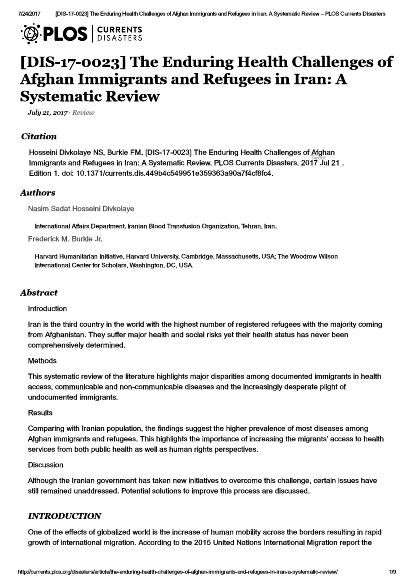
Iran is the third country in the world with the highest number of registered refugees (1 million). The majority of refugees came from Afghanistan but their health status has never been comprehensively determined. UNHCR acknowledges that “refugee” or “migrant” have distinct and different meanings and “confusing them leads to problems for both populations”. They use “refugees” when people flee war or persecution across an international border and “migrants” when people move for reasons not included in the legal definition of a refugee.6 In compliance, this study refers to Afghan refugees as nationals of Afghanistan who left their country as a result of war or persecution; and, . Afghan immigrants as those who choose to move not because of a direct threat of persecution or death, but mainly to improve their lives by finding work, or in some cases for education, family reunion, or other reasons. These terms are used interchangeably in some of the reviewed literature which ineluctably have been reflected in this manuscript. Evaluating the health needs of this population and assess their access to health services are necessary for health policymakers to develop and adopt appropriate strategies. Increasingly, this has become a major public health concern. As such, a systematic review of relevant studies including the culture profile, and health access and risks are required to better assess and respond to issues of prevention, preparedness, response and recovery.
